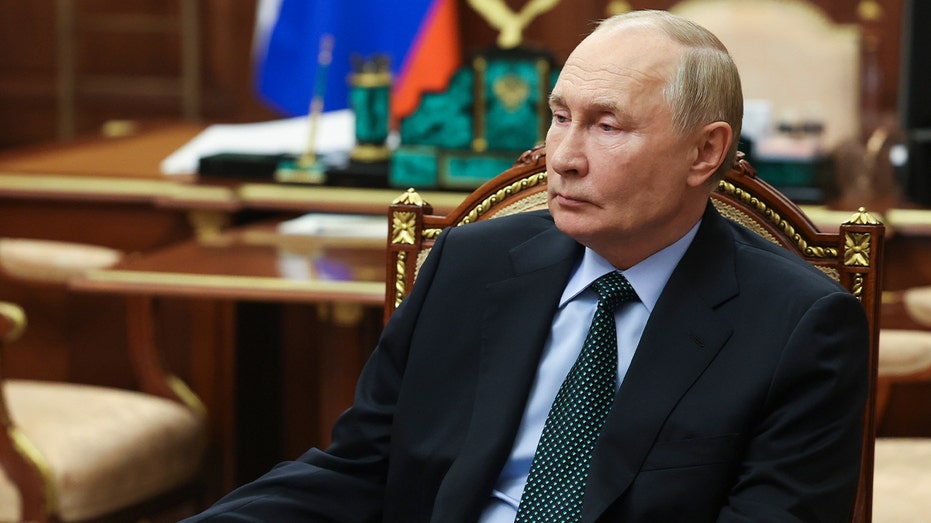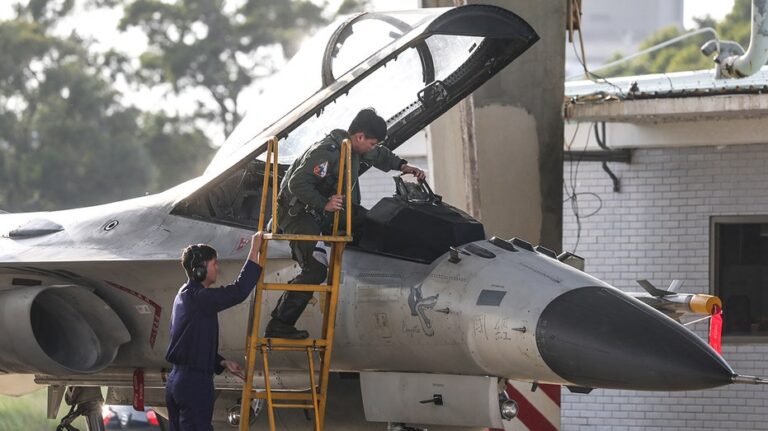
Russian President Vladimir Putin signed a revised nuclear doctrine stating that any attack on Russia supported by a country with nuclear power could potentially trigger a nuclear response.
Russian President Vladimir Putin signed a revised nuclear doctrine on Tuesday stating that any attack on Russia supported by a country with nuclear power could be grounds for a nuclear response.
Putin signed the new policy on the 1,000th day of the war with Ukraine and the day after President Biden authorized Ukraine to use U.S.-supplied longer-range missiles to strike inside Russia.
The doctrine also states that Russia could respond to aggression against its ally Belarus with nuclear weapons, The Associated Press reported.
Though the doctrine doesn’t specify that Russia will definitely respond to such attacks with nuclear weapons, it does mention the “uncertainty of scale, time and place of possible use of nuclear deterrent” as key principles of deterrence.
BIDEN AUTHORIZES UKRAINE TO USE US LONG-RANGE MISSILES TO STRIKE INSIDE RUSSIA
When asked if the updated doctrine comes in response to Biden’s decision to ease restrictions on how Ukraine can strike Russia, Kremlin spokesperson Dmitry Peskov told the AP that the doctrine was published “in a timely manner.”
Peskov also said Putin told the government to update it earlier this year so that it’s “in line with the current situation” – the Russian president led a meeting in September to discuss these proposed revisions to the doctrine.
TRUMP ALLIES WARN BIDEN RISKING ‘WORLD WAR III’ BY AUTHORIZING LONG-RANGE MISSILES FOR UKRAINE
Revealed in September, the doctrine now officially states that an attack on Russia by a nonnuclear power with the “participation or support of a nuclear power” will be seen as a “joint attack on the Russian Federation.”
It also contains a broader range of conditions that would trigger the use of nuclear weapons, noting that they could be used in response to an air attack involving ballistic and cruise missiles, aircraft, drones and other flying vehicles.
The previous document threatened the use of Russia’s arsenal if “reliable information is received about the launch of ballistic missiles targeting the territory of Russia or its allies.”
The Associated Press contributed to this report.






